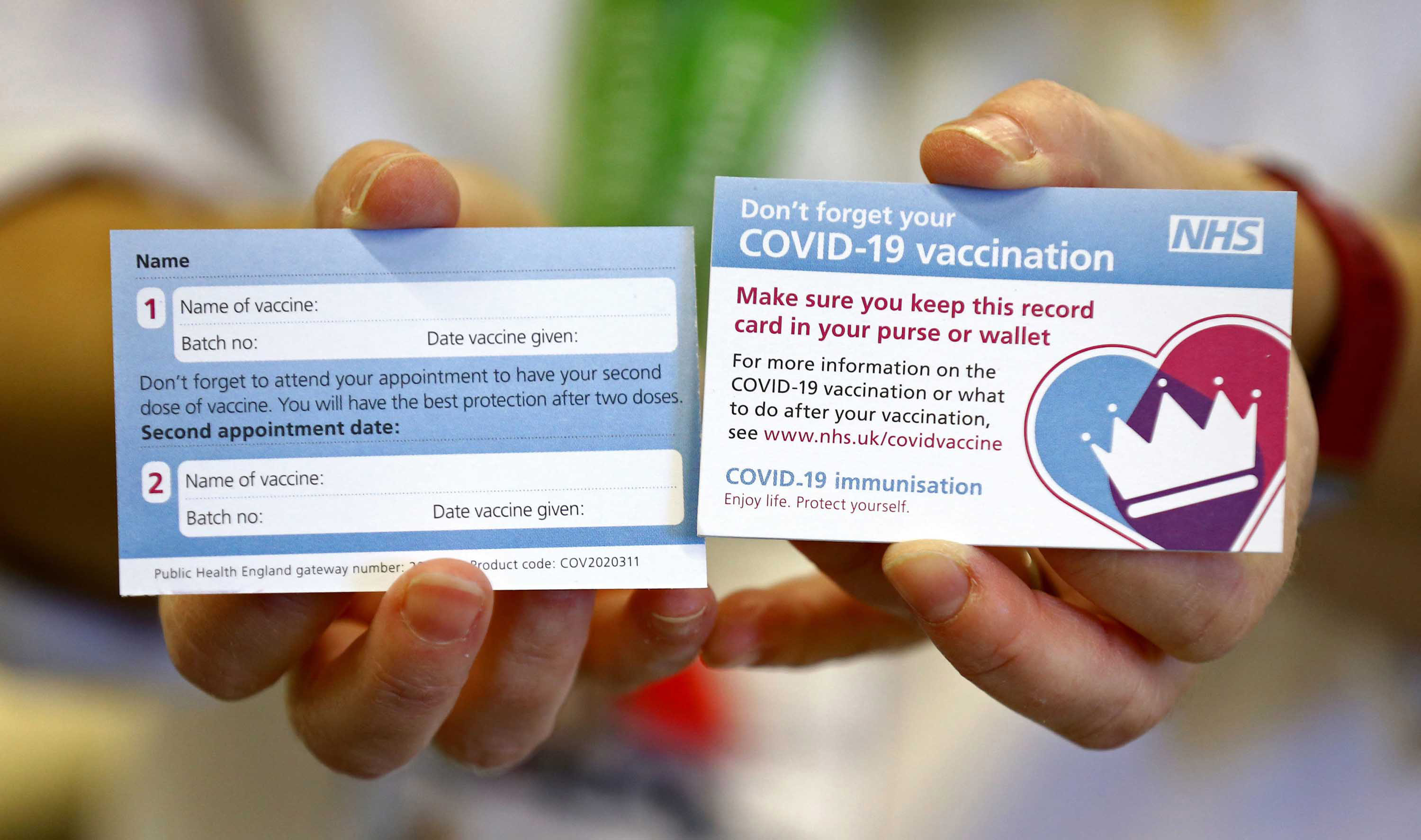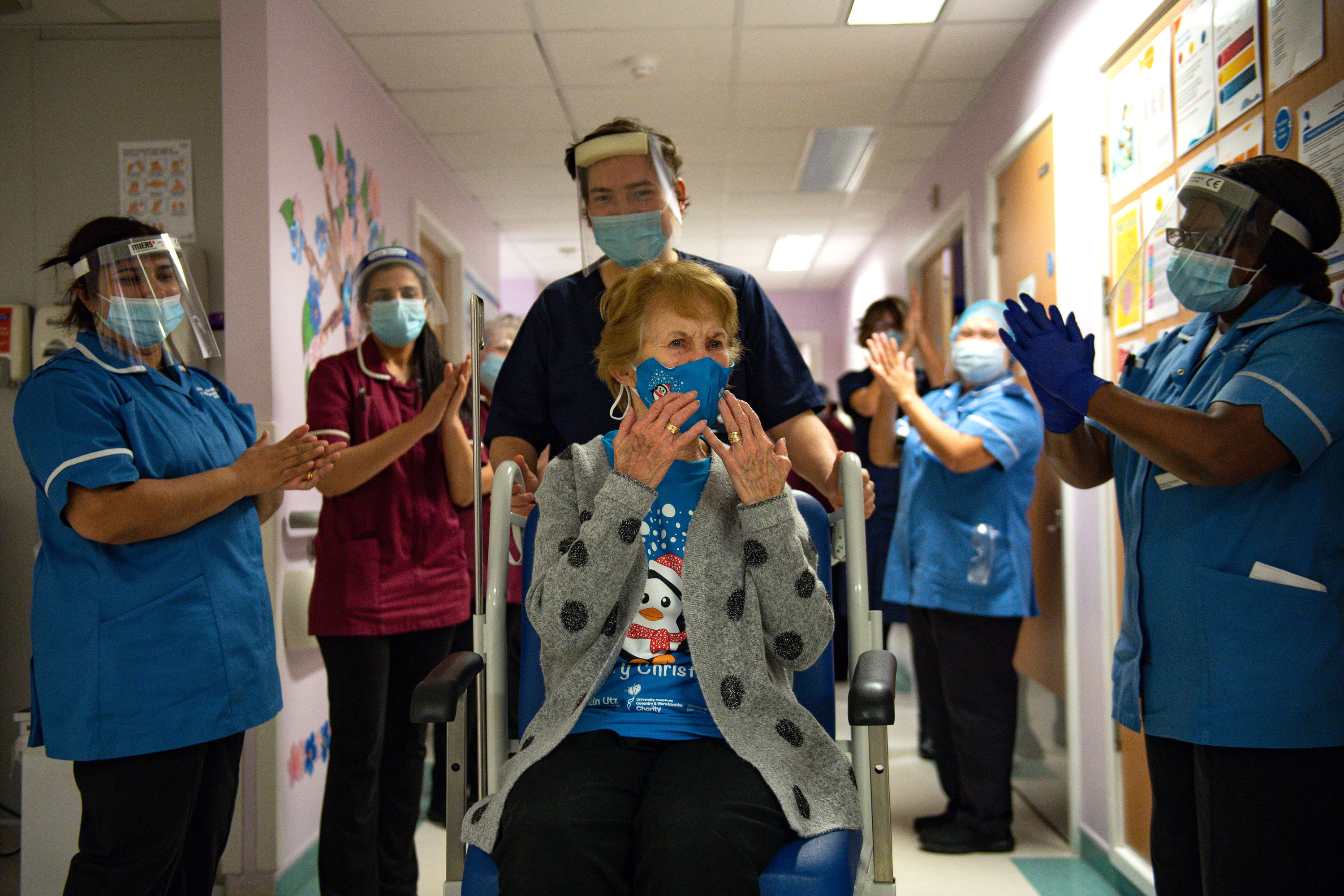As the UK rolls out its mass Pfizer-BioNTech coronavirus vaccinations, Australia is preparing to do the same early next year.
Australia is slated to initially receive 10 million doses, which is enough for 5 million Australians to get a dose and booster shot.
The vaccinations will bring freedom and safety to many Australians who have faced extreme risk since the pandemic hit in February.

Here's everything you need to know about how the Pfizer-BioNTech works.
How effective is the Pfizer-BioNTech vaccine?
Phase 3 studies showed Pfizer-BioNTech's vaccine BNT162b2 was 90 per cent effective in preventing infection.
The phase 3 clinical trial involved 43,538 participants.
Does it work?
According to documents released by the US government Food and Drug Administration (FDA), the vaccine works similarly for people in all racial and ethnic groups.
The FDA's view is independent of claims made by the Pfizer-BioNTech team.
READ MORE: NSW Premier issues COVID-19 vaccine warning
READ MORE: Grandmother, 90, receives UK's first COVID-19 vaccine
How long does it take the vaccine to work?
It appears to work quickly.
Pfizer-BioNTech's vaccine starts working within about two weeks of the first dose, with indications effectiveness begins at 10 days.
Is it safe?
The vaccine is safe and effective, according to the FDA, which has declared there are no serious safety concerns with the shot.
What about a second dose?
One shot is not enough.
Most participants in the Pfizer-BioNTech trials received a second booster shot.
The second dose is critical for protection beyond the short-term.
What does the second shot do?
It acts as a booster, triggering the immune system to produce long-lasting memory cells that stick around to protect against the virus in the future.
When does someone get the booster?
In the trial, the gap between doses ranged between 19 and 42 days.
How long will it last?
That's uncertain.
The trial only followed people for two months so at this stage there is no firm data on how long someone who has been vaccinated will be protected.

When could Australians have the vaccine?
The government wants regulatory approval completed by January and roll out by March.
How many vaccine doses will Australia get?
To begin there will be 10 million Pfizer-BioNTech doses available from early 2021.
That means a dose and booster for 5 million people.
Other vaccine candidates are at advanced stages which could bolster this number.
Who will get it first in Australia?
The government has a priority system, pushing the following groups to front of the line:
1. People who have an increased risk (elderly, people with certain health problems, Aboriginal and Torres Strait Islander people).
2. People with an increased risk of exposure (health and aged care workers, group residential care workers and disability care workers, those employed at correctional and detention facilities and meat processing plants).
3. People working in emergency services, defence forces, public health staff, staff managing quarantine facilities and workers employed by major infrastructure and utilities companies
If vaccinated, can I still transmit the virus?
Yes, it is possible.
The trial was not designed to test this theory.
What this could mean is that someone who has been vaccinated can still catch the virus but they will be asymptomatic.
If that is the case, a vaccine will not stop spread of the virus.
So masks and social distancing is still key?
Absolutely.
Health officials have urged people to not relax, even once vaccinations become widespread.
These measures will likely remain in place until the critical health threat subsides.
What about travel?
The boss of Qantas recently said it would not allow people to board its international flights if they have not been vaccinated.
Digital vaccine passports will likely become critical for international travel.
from 9News https://ift.tt/2IwEyTG
via IFTTT


0 Comments